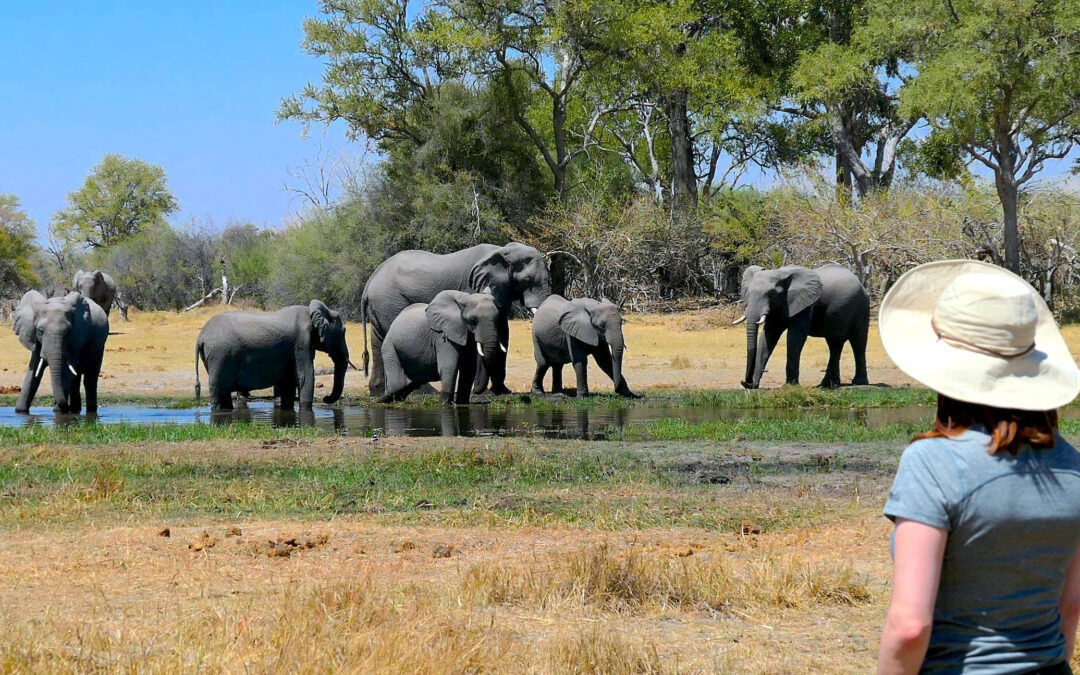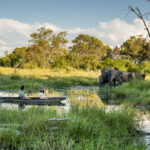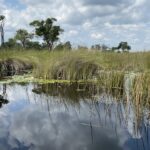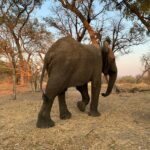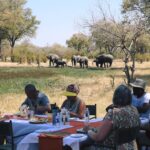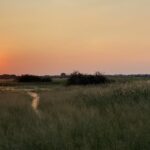Great news! Botswana President Masisi approved lifting the country’s international travel restrictions. It will happen in a phased manner, starting on November 9, 2020. You can now start planning your Botswana safari travel in 2021 and beyond.
International Travel into Botswana
Here’s what the press release said (you can read the original release on the Botswana Government Facebook page):
On November 9, 2020: air travel will resume into Botswana’s airports: Sir Seretse Khama International Airport (Gaborone), Kasane International Airport, and Maun International Airport. We expect international carriers to announce their schedule for online bookings imminently.
On December 1, 2020: those looking to travel in by road may do so from major land border points, including the Kazungula road, Kazungula ferry crossing from Victoria Falls & Livingstone, as well as the main border from South Africa – Martins Drift.
Botswana Safari Travel Requirements
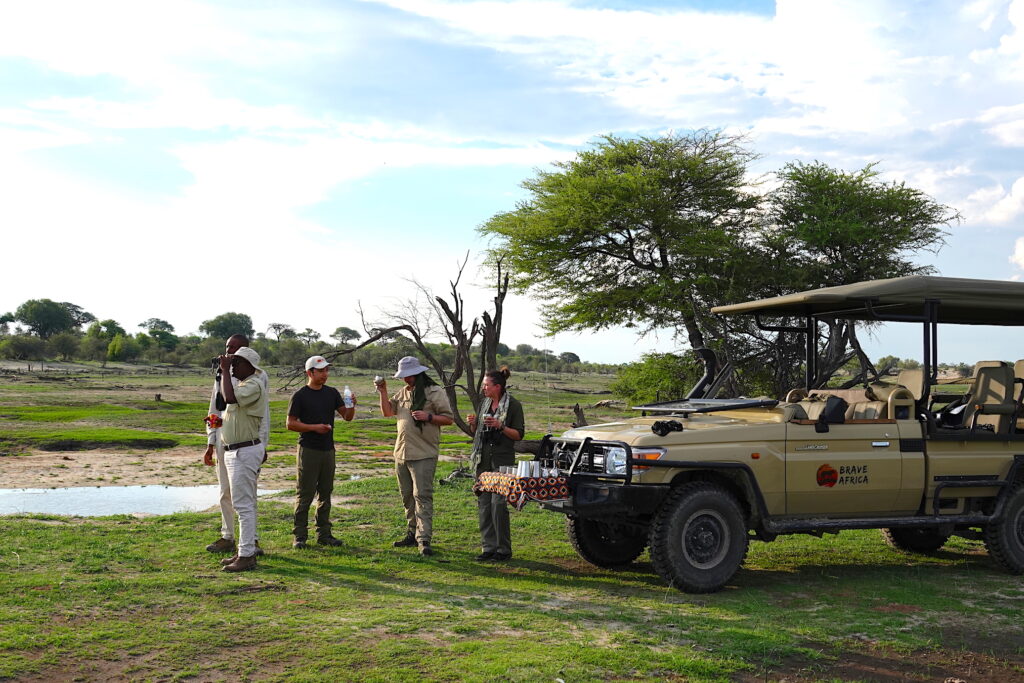
All arriving travelers will be expected to meet the following requirements:
- a) Present a valid 72 Hour negative COVID-19 Polymerase Chain Reaction (PCR) result from time of departure.
- b) Screened for COVID-19 symptoms upon entry.
- c) Symptomatic clients upon arrival will be required to undertake mandatory testing and possible isolation and or quarantine, as per section 76 (1) (2) and 80 of the Public Health Act of 2013 (our company is discussing a protocol to ensure symptomatic guests are well looked after and access to the best facilities possible).
- d) The traveler will be required to remain in contact with the local health authority for a period of 14 days doing self-monitoring.
- e) Travelers exiting Botswana are expected to comply with the destination country’s travel regulations at their own expense.
- f) Non-citizen travels NOT meeting the requirements will NOT be allowed entry into Botswana.
We’ll continue to update you as we get more information.
Botswana Safari Travel During Green Season (December – March)
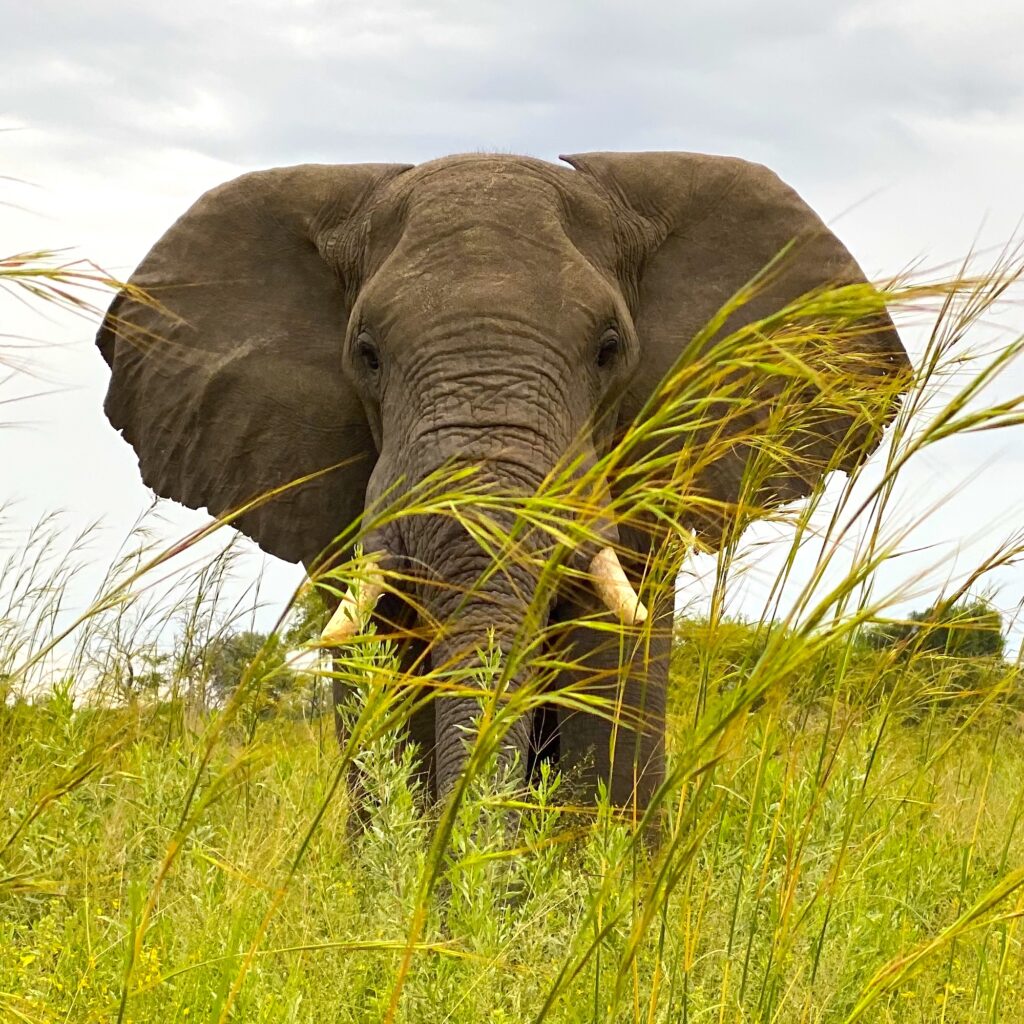
Now that we know Botswana is opening up to safari travel again, let’s talk about it! Should you go on safari in Botswana during the Green Season?
Green Season—also known as rainy season—begins in December and goes through March. It’s typically the least popular season to go on safari in Botswana, but that doesn’t mean it’s a bad time to visit. Every month in Botswana offers something special and different for visitors.
Check out our Frequently Asked Questions for more insight into a Botswana safari.
Truly, Botswana is a year-round destination with more than 300 days of sunshine and abundant wildlife whenever you visit.
Rainy Weather
Green Season is known for lots of thunderstorms and rain. But remember, the Okavango Delta is part of the Kalahari Desert. And as a desert, it never rains too much or too often.
Two of our owners visited in late December 2019 for seven days and only experienced one evening with storms. And when a recent guest went on a 25-day safari in March 2020, she was only rained out one day.
However, we can never predict the weather or promise that you won’t get rained on. December through March is rainy season, and so that is a risk you take. And one thing we can promise Is humid and hot weather.
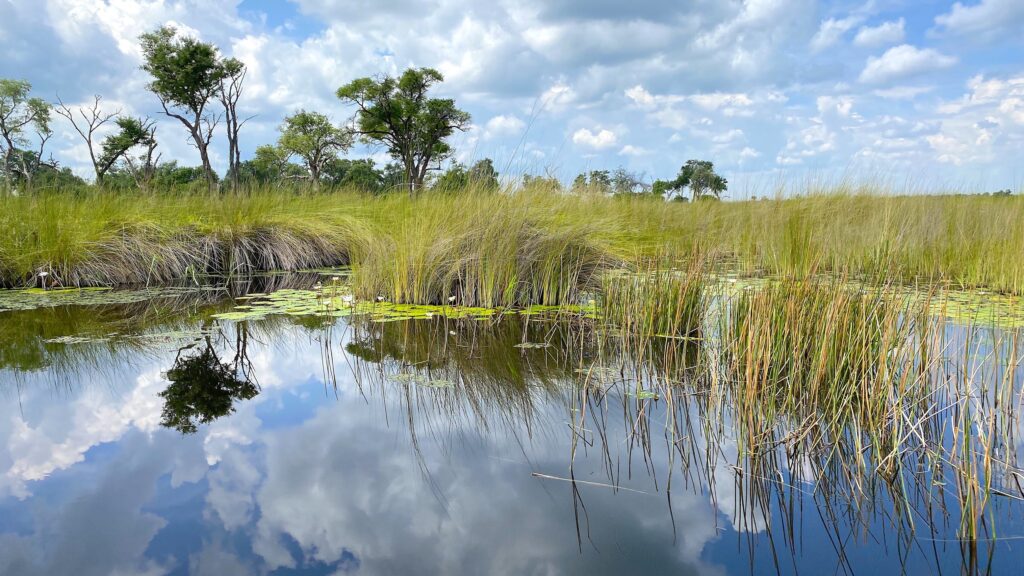
Green Vegetation
The good news is that with rain comes beautiful green vegetation and flowers. The Okavango Delta is never prettier than during Green Season. The scenery is truly stunning. Water, flowers, bushes, and trees are abundant. The Delta is completely transformed into an oasis during this time, making for some truly incredible photos.
However, green vegetation does come with a few downfalls:
- The thicker the vegetation, the more easily animals can hide in the bushes, so it might make animal sightings a little more hard-fought.
- An abundance of water can also come with more mosquitoes and other bugs. It never gets too terrible when it comes to bugs, but it is something to keep in mind if you have a phobia.
- Vegetation and flooding can also limit where you can drive. Especially later in the season (February and March), you may find that your safari vehicle has to go out of the way to drive around deep water.
The good news is that green vegetation and flooding can also limit where animals—particularly predators—can travel. This means if you can find dry land, you might have predators and their prey that are easy to find and watch. This happened to our safari guest this past March 2020. She saw an abundance of lions in Khwai because they were limited to the same dry land that the safari vehicle was limited to.
Newborn Animals
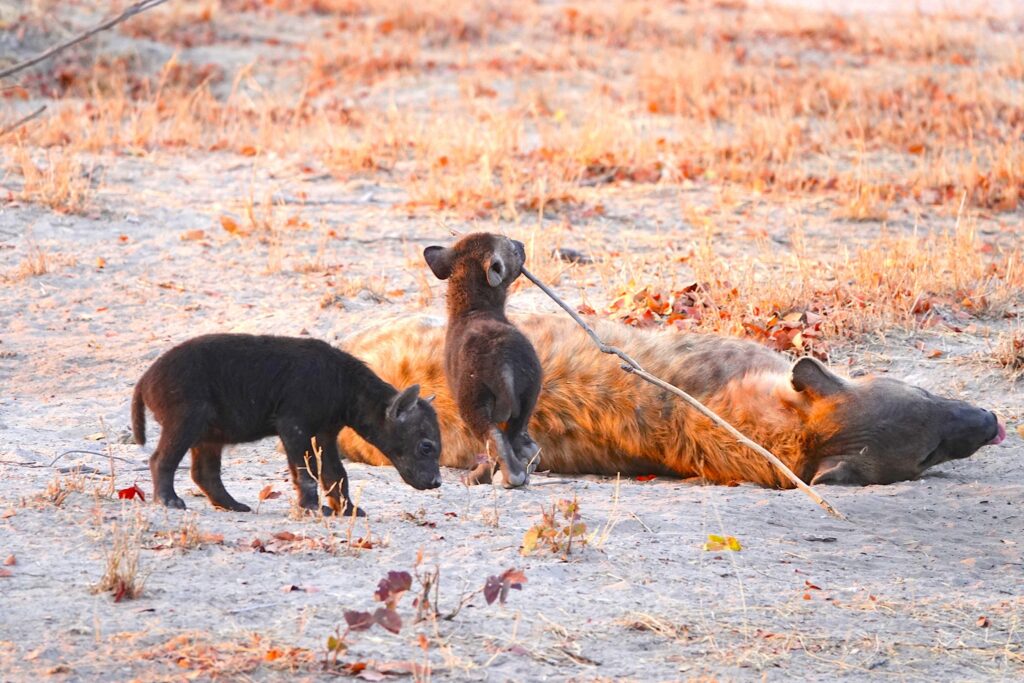
Green Season is also newborn animal season. That’s because newborns and expectant mothers are highly dependent on an abundance of water to survive. December through March can be a great time to see newborn antelopes, zebra, giraffe, and more.
For example, did you know that impala can stop the birthing process until right after a rainy day? They can remain pregnant for additional weeks on end until it’s just the right time and rains hit.
As for predators, this is also their birthing season. However, it is highly rare to see newborn predators. Their mothers are typically very protective and keep their newborns hidden in bushes, dens, and trees until they are old enough to handle the world independently. It’s for this reason that we actually recommend March – June to see young predators.
However, we really can’t predict when a particular predator (lion, leopard, cheetah, wild dog, or hyena) will give birth. So, going on a Botswana safari at any time can result in seeing cubs and pups.
And the best news is that elephants give birth year-round. So if you want to see baby elephants, any time you visit is a great time.
Migrations
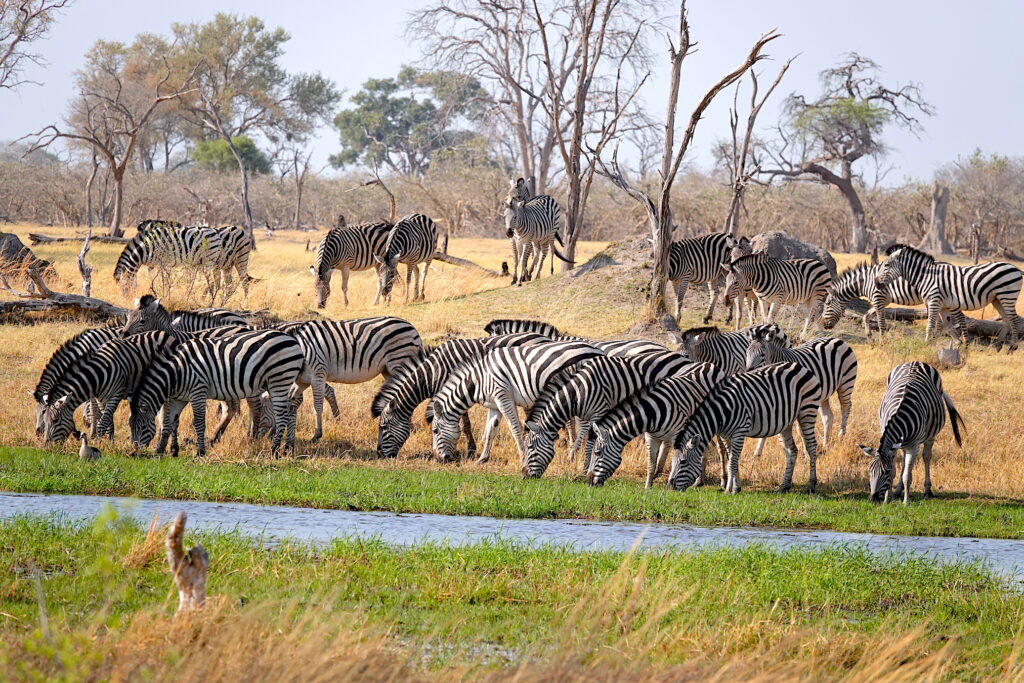
Did you know that Botswana is home to one of the greatest migrations in all of Africa? The Chobe River to Nxai Pan National Park zebra migration is the longest known mammal movement in Africa—a round-trip of over 482 KM (300 miles).
Around 20,000 zebras take this route every year! It’s an incredible sight. You have the best chance of witnessing this phenomenon during Green Season. The migration usually starts in December or January, depending on the rains. If it’s a drier season, the migration will start a little later than usual because the zebra follow the water.
Botswana Safari Weather in Green Season
Now, let’s take a look at the specific weather you can expect. Remember, it’s always a good time to go on safari in Botswana.
Botswana Safari in December
December welcomes the first rains of the wet season. The weather begins to cool this time of year, and some areas will be inaccessible because of mud and heavy rain. However, flooding won’t be in abundance yet, so you should still have many chances to get around. This time of year is excellent for newly-born calves and cubs as well as migrant birds and zebra, and some green scenery.
The good:
- Lots of newly-born calves and cubs.
- The migration season for Zebras and birds (in the millions) begins.
- Start of the green season, which can mean beautiful foliage.
- Shoulder and Off-Season pricing makes these two months more affordable.
The bad:
- Hot and humid weather can make game drives uncomfortable.
- There’s a good chance you can be rained on at the start of the wet season.
- Mud and heavy rains may make some areas inaccessible.
Botswana Safari in January and February
January and February are the two wettest months of the year. This means that you have a good chance of getting rained on while you’re out on game drives. However, it also means there’s beautiful thick, green vegetation.
The scenery will be stunning this time of year. Flowers will be in bloom, trees will be packed with leaves, grass will be growing, and water will be everywhere. Unfortunately, this incredible scenery can hide wildlife because you can’t see as far.
It’s also hot and humid. Despite this, these months are incredible for bird watching, many migrations are in full swing, and many antelope give birth so predators can be abundant.
The good:
- Great time for bird watching.
- Beautiful scenery
- Many migrations are in full swing, including the Botswana zebra migration.
- Antelope birthing seasons, so hunting predators will be in abundance.
- Highly affordable off-season prices.
- This is a great time to enjoy unique safari activities only found in Botswana’s Okavango Delta, such as the mokoro and boating safari.
The bad:
- Lush greenery means that animals have more hiding places.
- Lots of rain could mean wet game drives.
- An abundance of water may make it difficult to get to many areas.
- Hot and humid weather may be uncomfortable for some.
Botswana Safari in March
March is when the rains begin to ease. You’re far less likely to be rained on in March, but all the water from January and February has built up, so water is absolutely everywhere. This will be the greenest season and a stunning time to visit Botswana if you want to see the country in full bloom. However, because the water has had so long to build up, getting around can be difficult. You’ll have to find a way to drive between water, and some areas may be inaccessible. But this does mean that you’ll find large concentrations of animals in the accessible dry areas. Unfortunately, this can also be prime mosquito season, so bug spray is a MUST!
The good:
- Because it’s so wet, large concentrations of animals will be found in dry areas.
- The greenest time of the year with lush plants and flowers.
- It’s birthing season for many animals, which could mean lots of happy predators.
- Highly affordable off-season prices.
The bad:
- VERY thick greenery means that animals have more hiding places.
- Flooding may make it difficult to get to certain areas.
- This is a mosquito-heavy season because there’s so much water.
Plan Your 2021 Botswana Safari Now!
So, are you ready to start planning your 2021 Botswana safari? We hope so. If you travel during Green Season, you get to take advantage of our Special Pricing.
- 10-Days and 9-Nights for just $4,000 a person. This is a cost savings of $491 per person.
- 7-Days and 6-Nights for just $2,700 a person. This is a cost savings of $294 per person.

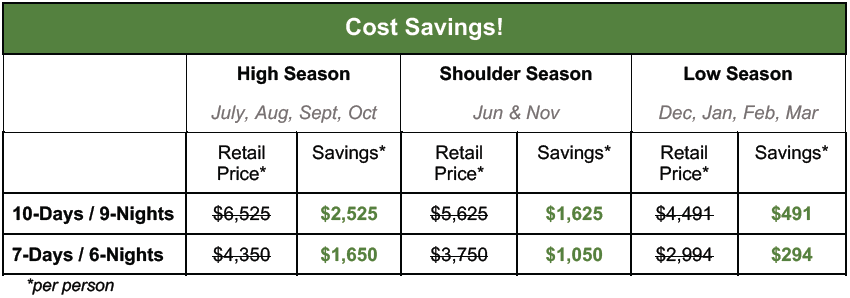
You can also take advantage of our increased flexibility and our Book Now, Pay Later policies.
- If something goes wrong, you can reschedule (with 30-days notice) without penalty for any time through December 31, 2021.
- If you have to reschedule, you get a 10% bonus towards your rescheduled booking.
- Hold your booking for an incredibly affordable deposit.
- $400 for 6 nights / 7 days itinerary (regardless of party size)
- $600 for 9 nights / 10 days (regardless of party size)
And don’t worry! If you can’t schedule your Botswana safari over the Green Season, we’ll still be open the rest of 2021. You can go on safari with Brave Africa at any time, and we’d love to have you.
Contact us now at [email protected] or fill out our website form.

